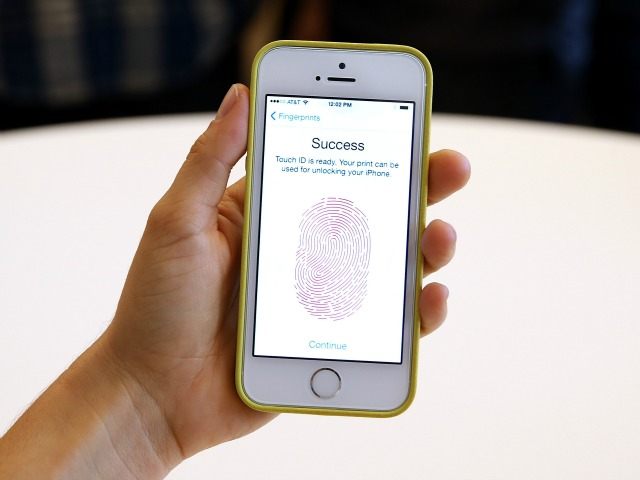The Minnesota Supreme Court has ruled that fingerprint scanning locks commonly found on smartphones are not protected by the Fifth Amendment.
Using your fingerprint to unlock your phone will now be considered “exhibiting the body” instead of “producing documents,” excluding fingerprints from Fifth Amendment protection.
“Cellphone manufacturers introduced fingerprint readers in an effort to protect users from thieves or other unauthorized access. But it does nothing at all to prevent law enforcement from using their fingerprints to unlock seized devices,” explained Techdirt on Tuesday, adding that, “When it comes to the Fifth Amendment, you’re better off with a password or PIN securing your device, rather than your fingerprint.”
In their ruling, The Minnesota Supreme Court claimed “a fingerprint isn’t testimonial, even if it results in the production of evidence used against the defendant,” according to Techdirt.
“Although the Supreme Court’s distinction between the testimonial act of producing documents as evidence and the nontestimonial act of producing the body as evidence is helpful to our analysis, the act here—providing the police a fingerprint to unlock a cellphone—does not fit neatly into either category,” ruled the court. “Unlike the acts of standing in a lineup or providing a blood, voice, or handwriting sample, providing a fingerprint to unlock a cellphone both exhibits the body (the fingerprint) and produces documents (the contents of the cellphone). Providing a fingerprint gives the government access to the phone’s contents that it did not already have, and the act of unlocking the cellphone communicates some degree of possession, control, and authentication of the cellphone’s contents.”
“But producing a fingerprint to unlock a phone, unlike the act of producing documents, is a display of the physical characteristics of the body, not of the mind, to the police,” they continued. “Because we conclude that producing a fingerprint is more like exhibiting the body than producing documents, we hold that providing a fingerprint to unlock a cellphone is not a testimonial communication under the Fifth Amendment.”
Charlie Nash is a reporter for Breitbart Tech. You can follow him on Twitter @MrNashington, or like his page at Facebook.

COMMENTS
Please let us know if you're having issues with commenting.